Atom Display
SKU:K115
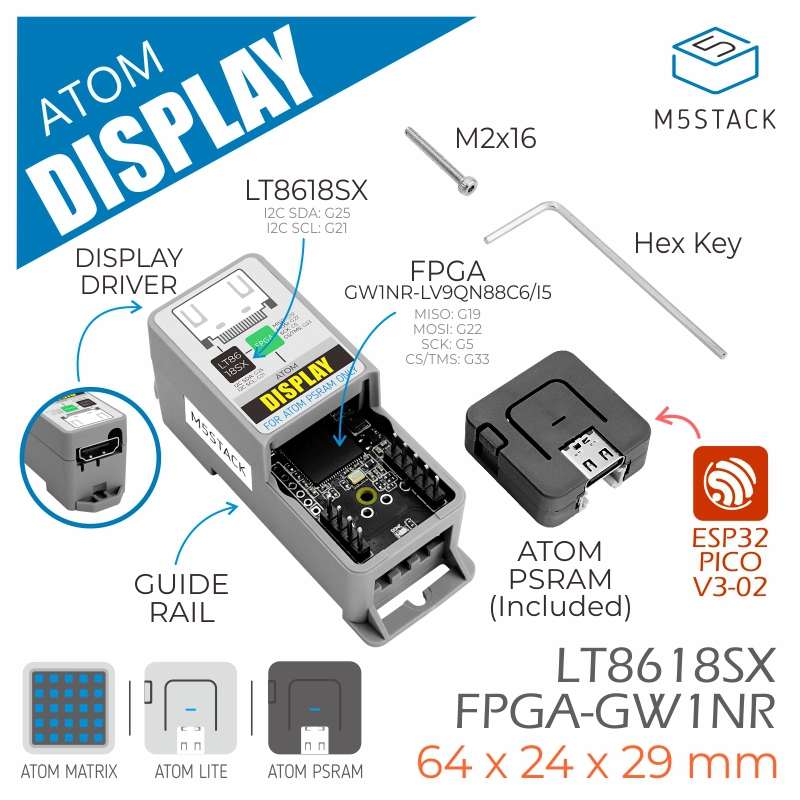
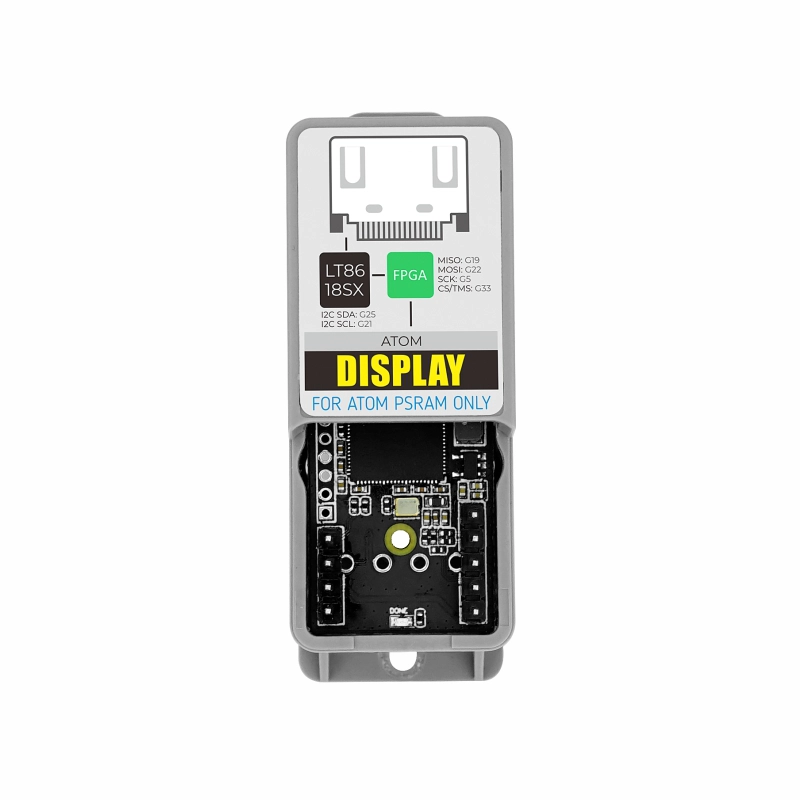
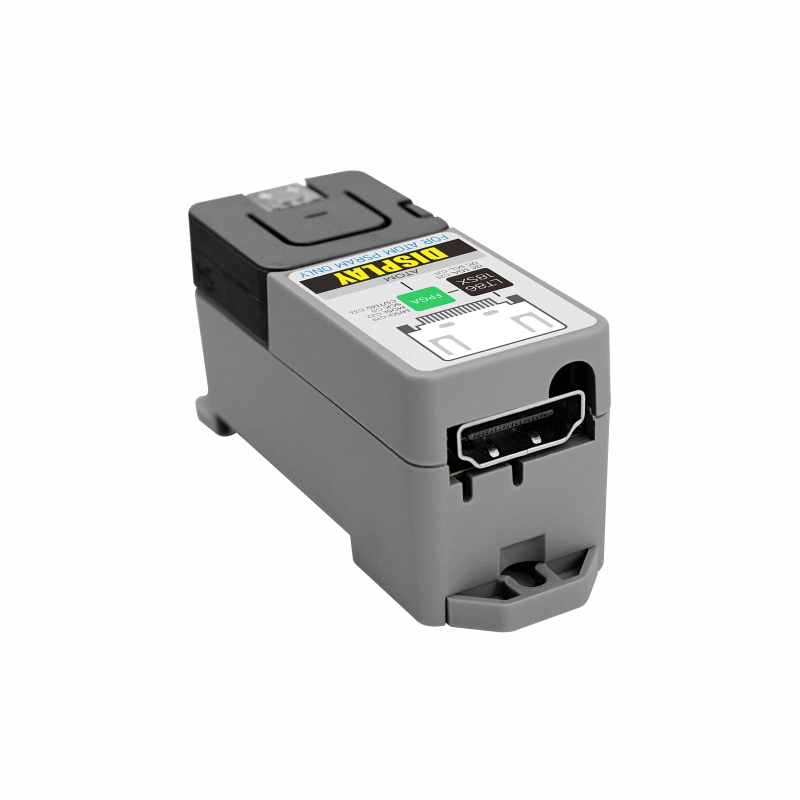
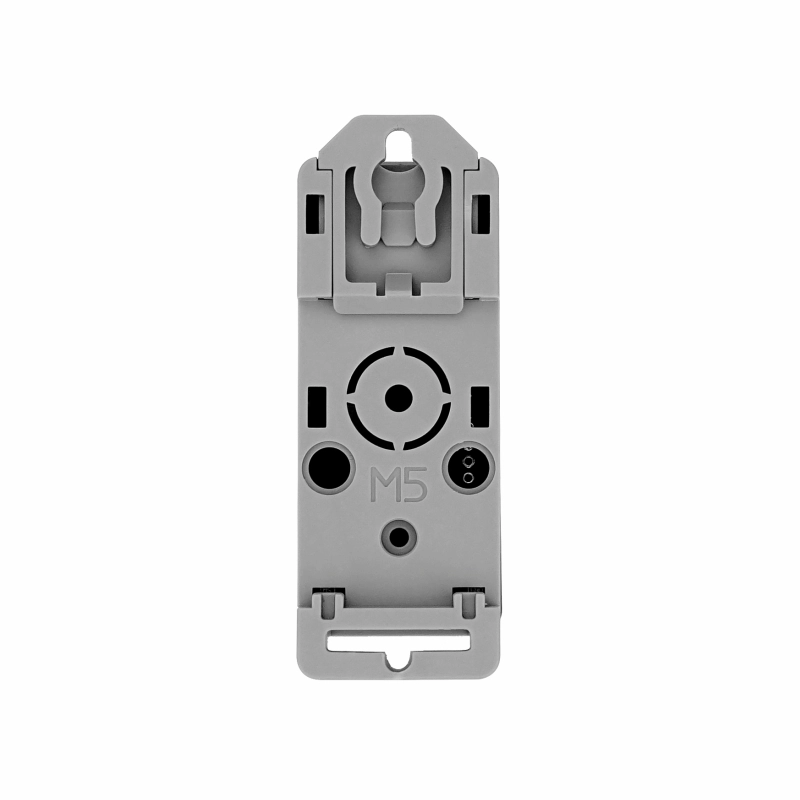
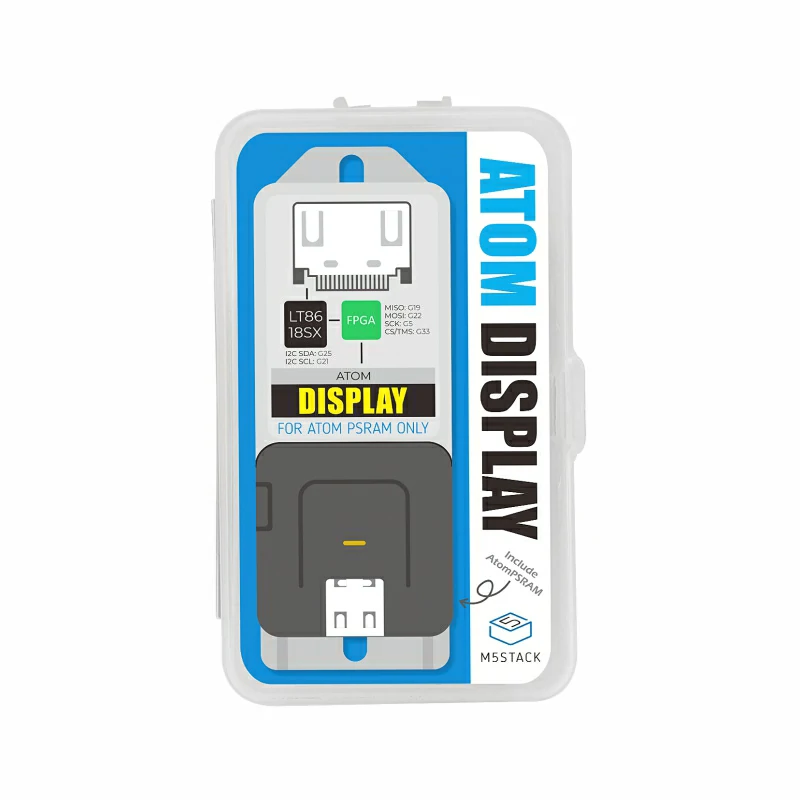
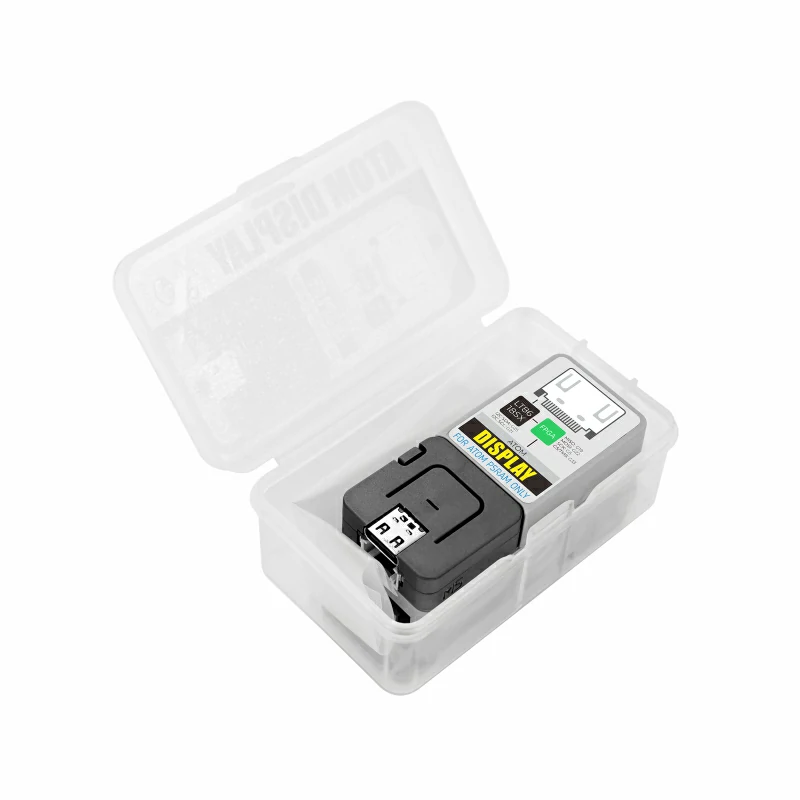






Description
Atom Display is a low-cost display driver that uses FPGA to simulate traditional SPI TFT-LCD data output, supporting a maximum image output of 720P (1280 x 720). It incorporates a dedicated RGB-to-HD multimedia signal conversion chip for wide compatibility in display output. Embedded with an ESP32 controller, it integrates 2.4G Wi-Fi and comes with 8MB Flash + 2MB PSRAM memory. Atom Display can replace traditional PC-controlled display panel solutions, offering a more cost-effective alternative.
Features
- FPGA and driver library code are open-source
- Utilizes FPGA (Gowin GW1NR-9C)
- Built-in LT8618SX RGB-to-HD multimedia signal conversion chip (supports 24-bit color depth)
- SPI interface (FPGA) + I2C interface (LT8618SX)
- Maximum image output of 720P (1280x720)
- Multiple output modes, optimized frame rate up to 12 ~ 16 FPS
- Built-in Atom PSRAM controller (ESP32-PICO-V3-02, 8MB Flash + 2MB PSRAM)
- Programmable RGB LED x1, Reset button x1, Button x1, Full-featured Grove expansion interface x1
- Development platforms: Arduino, ESP32-IDF (UiFlow not yet supported)
Includes
- 1 x Atom-PSRAM
- 1 x Atomic Display Base
Applications
- Display input signal source
- High-definition data dashboard
Specifications
| Specification | Parameter |
|---|---|
| FPGA | Gowin GW1NR-9C |
| LT8618SX | RGB-to-HD multimedia signal chip, supports 24-bit color |
| Maximum image output size | 720P (1280x720) |
| Output frame rate | 1280x720 60Hz |
| USB driver chip | CH9102 |
| Product Size | 64 x 24 x 29mm |
| Product weight | 21.0g |
| Package Size | 76 x 46 x 29mm |
| Gross weight | 34.0g |
Learn
Display Compatibility
Atom Display Lite requires a display with adaptive resolution scaling functionality. On some displays that do not support adaptive resolution, display anomalies may occur.
Schematics
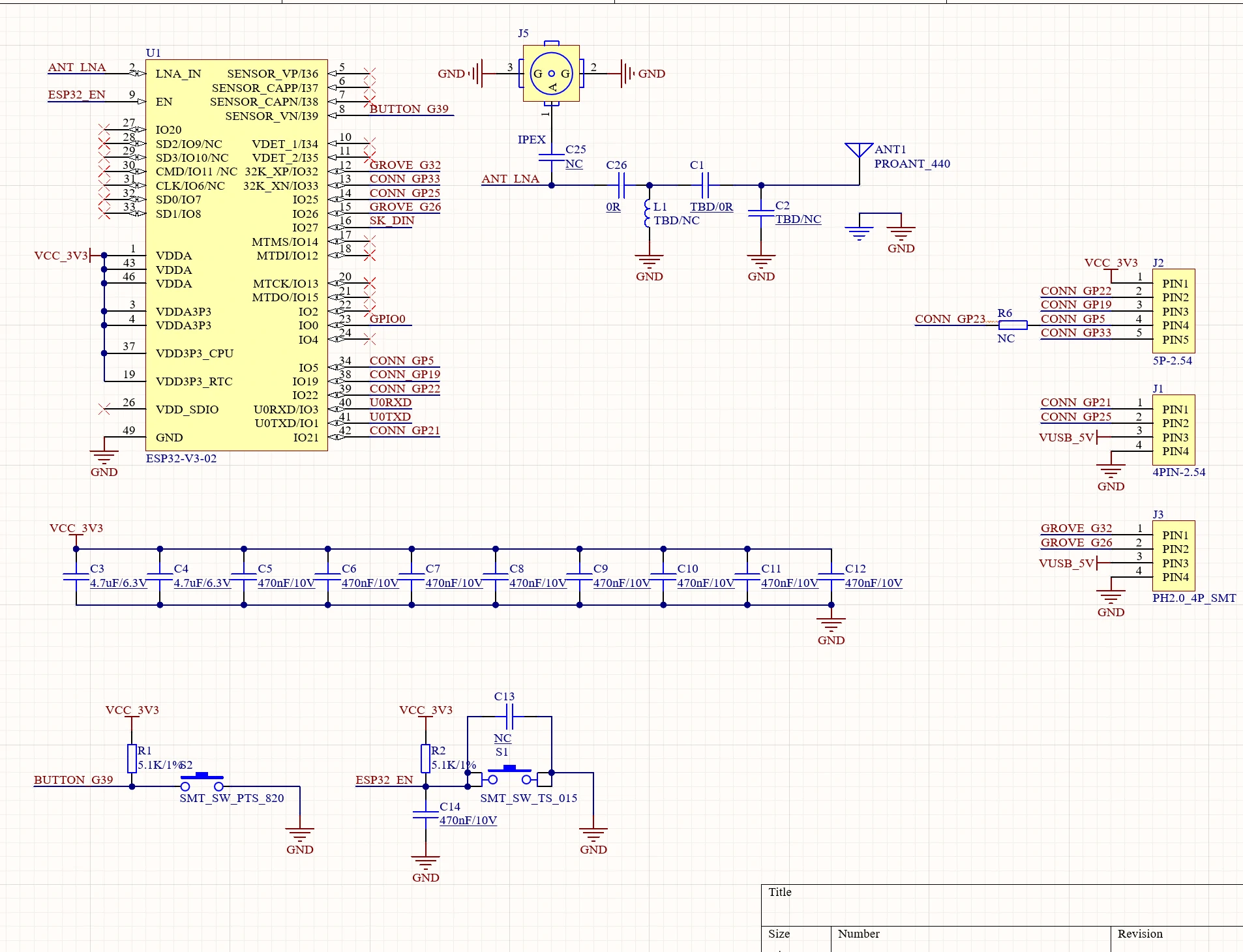
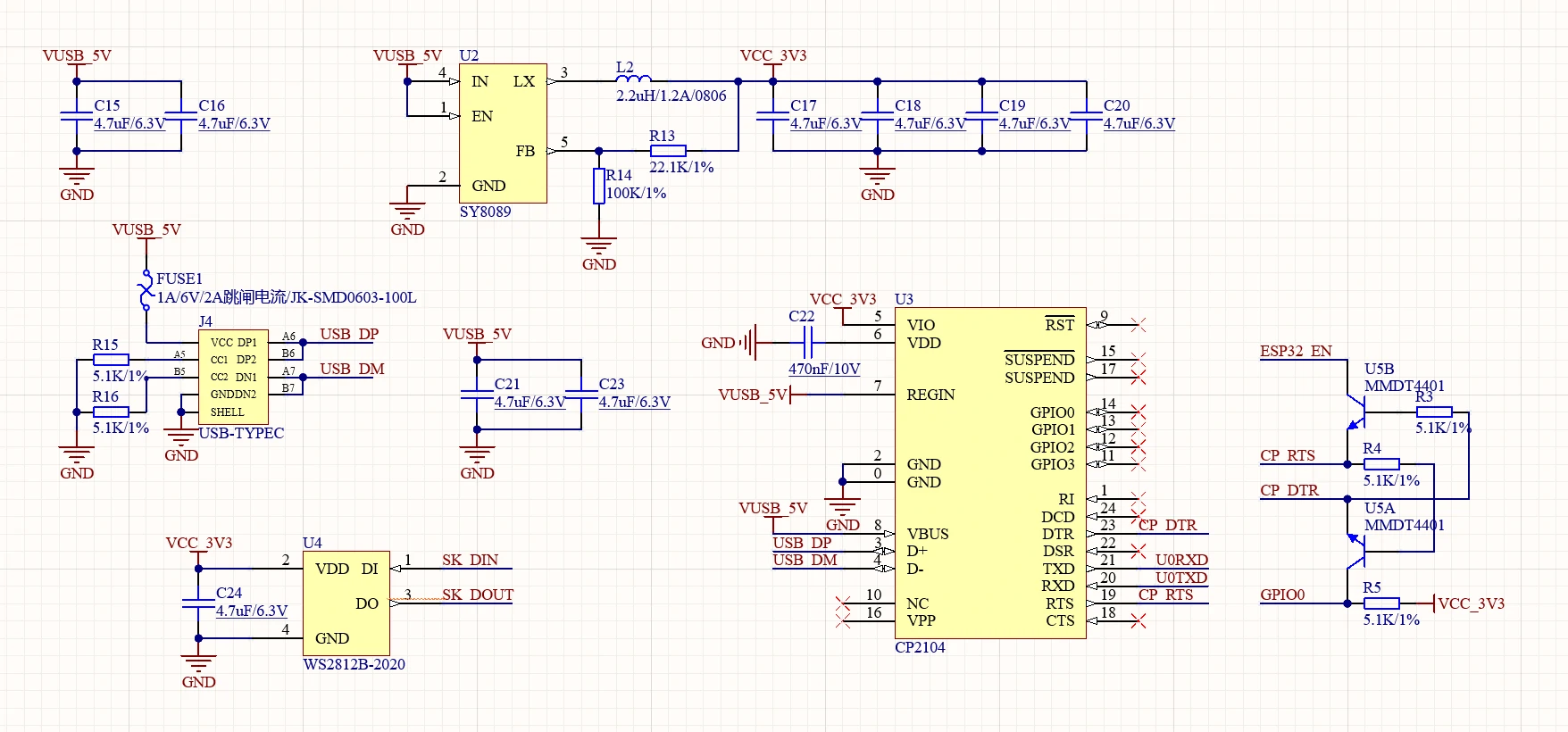
1/2


PinMap
| PIN | LEFT | RIGHT | PIN |
|---|---|---|---|
| 3V3 | 1 | ||
| SPI_CLK | 2 | 3 | |
| CS | 4 | 5 | 5V |
| SPI_MISO | 6 | 7 | GND |
| SPI_MOSI | 8 | 9 |
- BUTTON & RGB LED
| Atom | G39 | G27 |
|---|---|---|
| BUTTON | SIGNAL | / |
| RGB LED | / | SK_DIN |
- LT8618SX
| Atom | G25 | G21 | 5V | GND |
|---|---|---|---|---|
| LT8618SX | LT_CSDA | LT_CSCL | VIN | GND |
Model Size
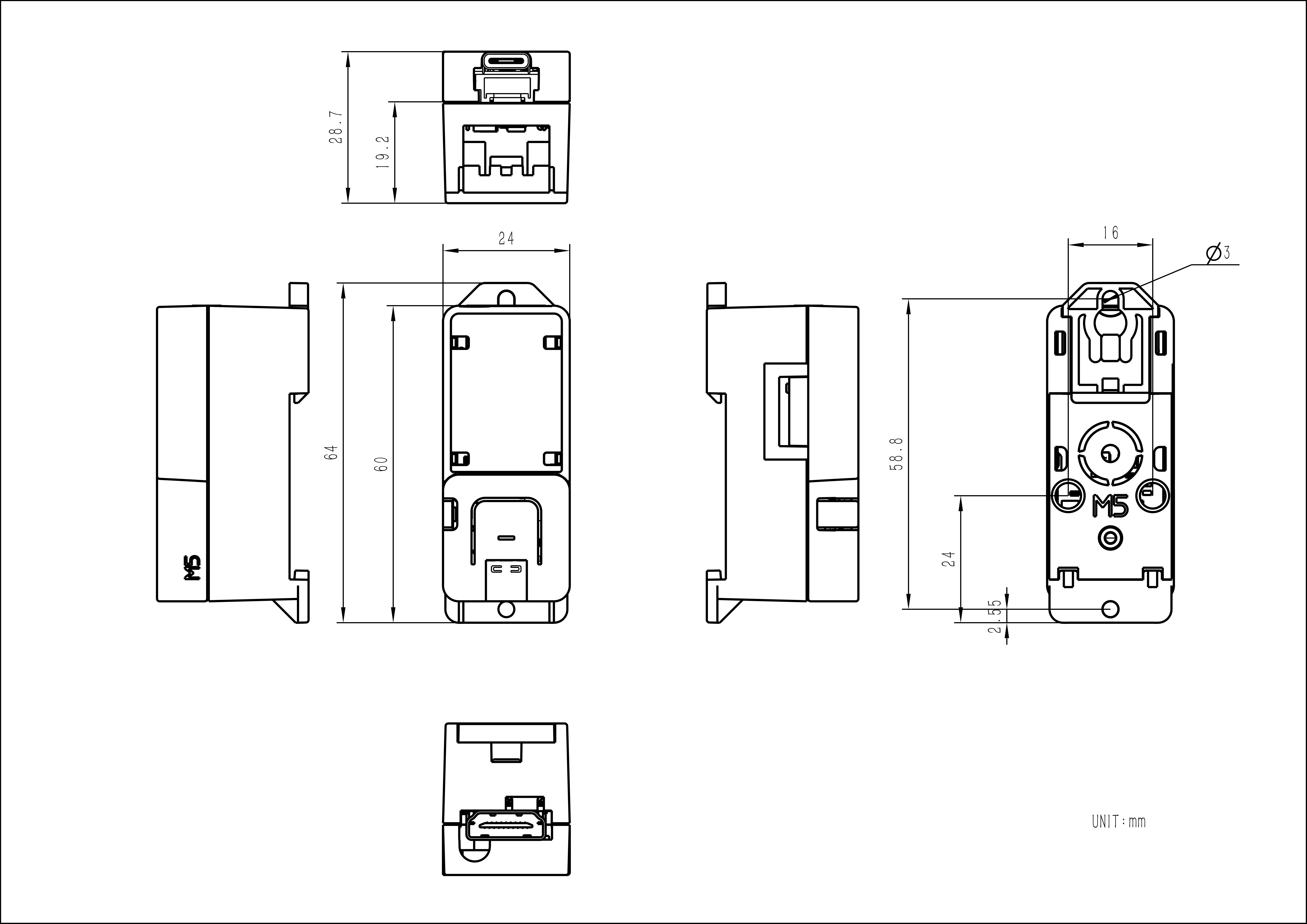
Softwares
Arduino
Programming Notes
Before using the example programs in the M5GFX library, you need to change the included header file to match the device you are using. As shown in the example below, include
#include <M5AtomDisplay.h> and create an instance M5AtomDisplay display;
#include <Arduino.h>
#include <vector>
#include <M5AtomDisplay.h>
M5AtomDisplay display;
void setup(void)
{
display.begin();
}
void loop(void)
{
display.fillScreen(RED);
delay(1000);
display.fillScreen(GREEN);
delay(1000);
display.fillScreen(BLUE);
delay(1000);
}